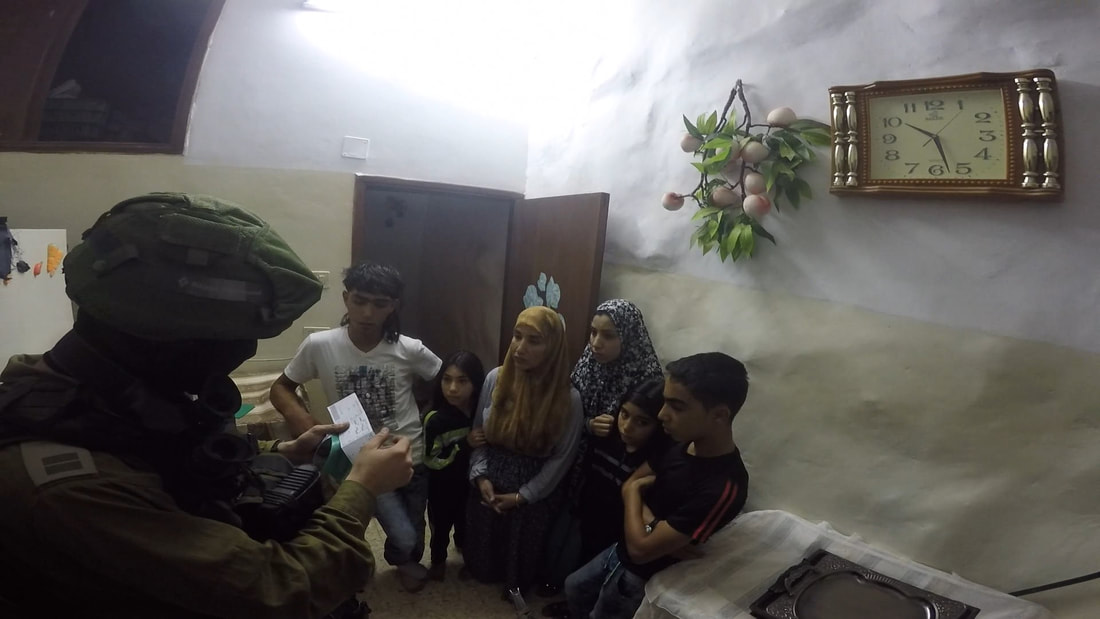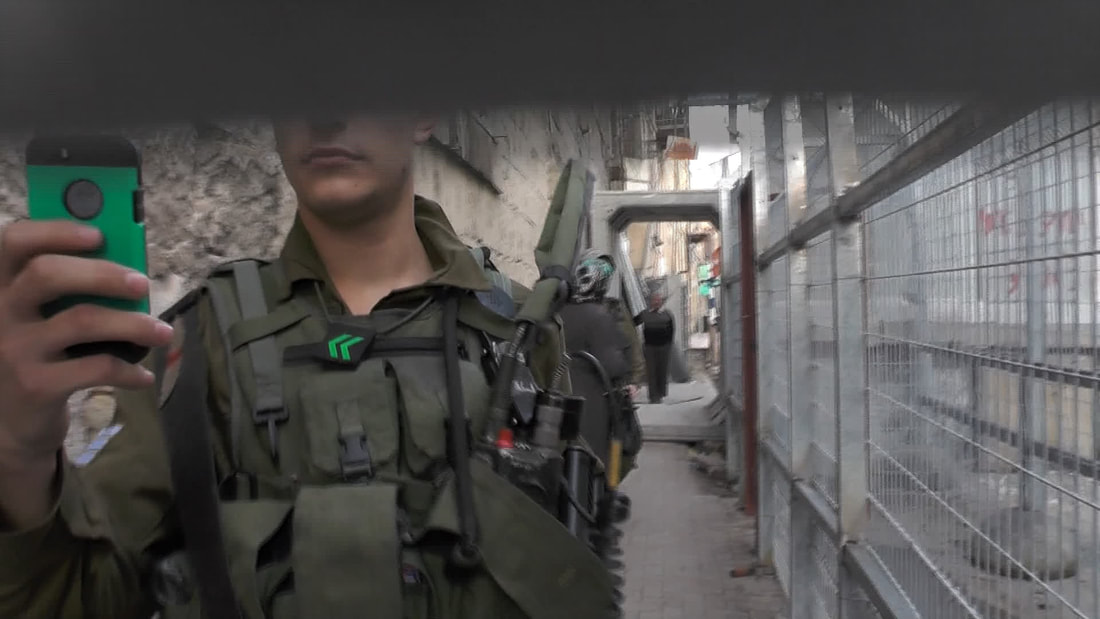H2: THE OCCUPATION LAB -- Informative, Effective Doc on Israeli Occupation Limits Ambitions5/9/2024 Review by Daniel Lima Documentary filmmaking may be the most dynamic and engaging way to succinctly impart information to an audience, but making that the primary artistic goal creates a ceiling that can be impossible to break through. H2: The Occupation Lab is a sterling example of this, as it seeks to educate viewers about the Palestinian city of Hebron, a portion of which is under the direct control of the Israeli government. Though it is undoubtedly an informative work, it lacks the perspective and drive that would make it stand out. An old city in the West Bank of significant religious importance to both Jews and Muslims, Hebron was forcibly occupied by Israel shortly after its creation. Tensions between the Palestinian residents and the Israeli settlers rose through the decades as the IDF exerted more and more direct control on behalf of the settlers. Today, H2 — the Israeli section of the city — is practically a ghost town, with the Muslim residents subject to raids, detainment, random acts of violence, and a lingering malevolent aura, a sense that they are not welcome in their own homes. The film is certainly effective in detailing how the situation deteriorated to its present state, offering a comprehensive overview of the city’s history. Beginning not with the establishment of the Israeli military government of Hebron but with the massacre of the Jewish population in 1927, the holistic portrait of conflict within the city manages to acknowledge sins committed by both factions without bothsiderist rhetoric that ignores power differentials. It is clear from how the movie is structured, bookending with images of empty streets and IDF soldiers harassing Palestinians, that the occupation is an evil for which there is no defense. It just doesn’t shy away from inconvenient truths. Most of the film is a chronological rundown of H2, with archival footage and talking head interviews with people present at major events. Surprisingly, not all the interviews are with Arabs; plenty of former Israeli officials and soldiers offer their own accounts, albeit most with a sympathetic or regretful perspective toward the people they worked to oppress. While these segments intend to impart the history of the city, the footage and testimonials are often emotionally stirring and disturbing. Jewish settlers mock Palestinians in their homes; IDF soldiers gleefully talk about gunning down taxis; Arab residents are executed on public streets. Perhaps most chilling is the cumulative substance of the footage, as lively streets full of Palestinians from decades ago give way to a barren, empty ghost town.
However, the movie falls a bit short in articulating a thesis beyond merely retelling and detailing how things got so bad. As implied by the title, it is stated early on that the practices that Israel instituted throughout the occupied territories were first tested within H2 — a perfect staging ground as an Israeli stronghold with a Muslim majority. Since most of the movie is spent on history, however, no time is spent drawing more than a casual link between what goes on in Hebron and Palestine as a whole. Naturally, anyone with a passing familiarity with what has been happening in Gaza can recognize the similarities, but establishing a timeline and a causal relationship between H2 and the world at large would have given these images even more potency and urgency. Ultimately, H2: The Occupation Lab is still interesting, harrowing, and informative enough to warrant a watch despite a relative lack of artistic ambition. Its primary purpose is simply to make its audience more knowledgeable about the situation in Hebron and the whole of Palestine, and it does an admirable job at that. It just would be nice if it attempted to go further than that. H2: The Occupation Lab is available on VOD May 10. Rating: 3.5/5
0 Comments
Leave a Reply. |
Archives
July 2024
Authors
All
|
|
|
disappointment media
Dedicated to unique and diverse perspectives on cinema! |


